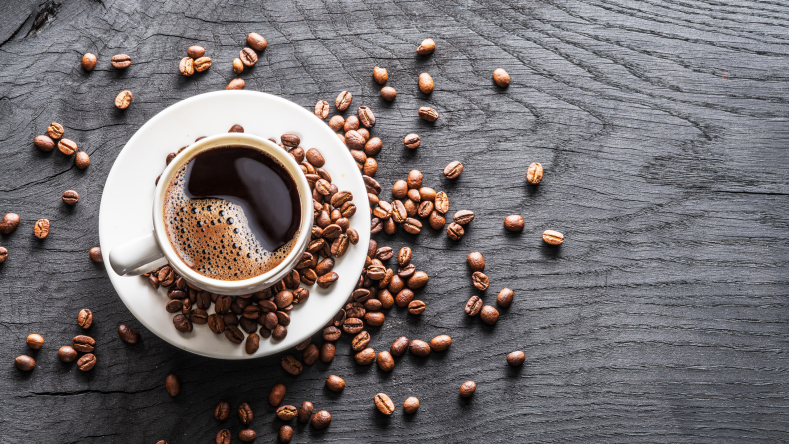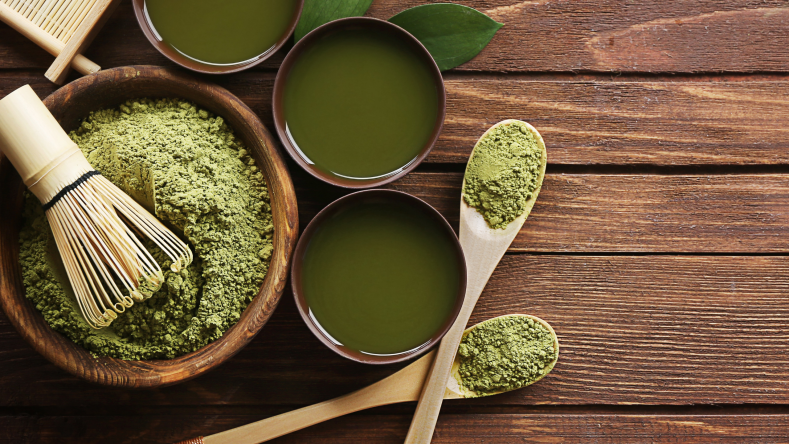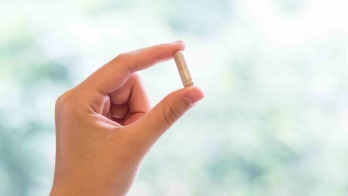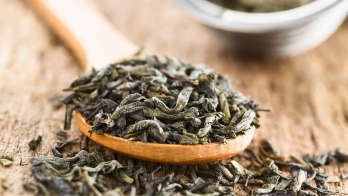The best supplements for more energy, according to science
Energy supplements aren’t a golden ticket to skimp on sleep, but they can provide a welcome pick-me-up throughout the day. Here are the best supplements for more energy, according to science.

Whether it’s lack of sleep, high stress levels, or dietary imbalances, there could be many reasons why you feel tired throughout the day. As such, you may find yourself reaching for an energy supplement to provide a welcome pick-me-up after a restless night or help you push through the occasional post-lunch slump. Navigating energy supplements can be tricky, though. Many claim to boost energy and increase alertness, but which ones are truly safe, effective, and science-backed? Here are the best supplements for more energy, according to science.

Ginseng
If you frequently feel fatigued, some evidence suggests ginseng may alleviate those symptoms and improve energy levels [ 17 17
While there are many varieties, Asian ginseng (Panax ginseng or Korean ginseng) and American ginseng (Panax quinquefolius) are the most common and widely used. Both anecdotal and scientific evidence suggest different varieties have different benefits. In traditional Chinese medicine, American ginseng is considered less stimulating than the Asian variety, but both contain ginsenosides (compounds with antioxidant and anti-inflammatory properties) that likely act on the central nervous system [ 17 18
One small clinical trial evaluated the effects of giving 1-2 g daily of Asian ginseng or a placebo to 90 people with chronic fatigue. The findings showed that those who received the ginseng experienced less mental and physical fatigue and had lower oxidative stress markers than those given the placebo [ 19 17
More research is needed before ginseng can be considered a standard treatment for fatigue. Still, given the promising research and low risk of adverse effects, it may be a good treatment option.
Sources of ginseng
The most natural source of ginseng is the root of the plant itself, which can be soaked in hot water to make tea, steamed, or even eaten raw [ 20
Ginseng supplements contain concentrated ginseng extract and are available in powder, capsule, tablet, and oil form. Though ginseng does not naturally occur in other foods, it is sometimes added to energy drinks and food products.
Get ginseng in your Elo Smart Gummies.
Ginseng side effects
Both American and Asian ginseng are generally well tolerated and considered safe to take in low-to-moderate amounts, short-term. Headache is American ginseng's most common side effect, while difficulty sleeping is more common with Asian ginseng [ 21 22
How to take ginseng for more energy
American ginseng is likely safe when used short-term and taken in doses of 100-3,000 mg/day for up to 12 weeks [ 21
Asian ginseng has most often been used by adults in doses of 200-3,000 mg/day for up to 12 weeks, with doses of 1000-2,000 mg/day appearing to alleviate symptoms of chronic fatigue [ 19 22

Caffeine
Caffeine is a powerful stimulant that has been shown to increase alertness and wakefulness, decrease fatigue, and boost cognitive performance [ 1 2
Caffeine’s stimulant effects also seem to carry over into athletic performance. For instance, research shows caffeine can improve strength, endurance, and training volume while decreasing an athlete’s perceived level of exertion [ 1 3 cyclists runners 3
Sources of caffeine
You can consume caffeine from various foods, beverages, and supplements.
Coffee and tea are the most commonly consumed sources of caffeine. Caffeine content in beverages can vary significantly from cup to cup depending on the variety, roast, and brewing technique, but here’s the caffeine you can expect to get from an 8-ounce mug [ 4
Coffee: 95-200 mg
Green tea: 30-50 mg
Black tea: 25-110 mg
Yerba mate: 65-130 mg
Caffeine can also be consumed in certain food and beverage products--including energy drinks, gels, chews, gum, and bars--and is naturally present in kola nuts (used to flavor cola soft drinks) and cacao pods (used to make chocolate) [ 6
Compared to a cup of coffee, a 12-ounce can of cola typically contains 35-47 mg of caffeine, and 1-ounce of dark or milk chocolate about 12-24 mg [
4
,5
].
Lastly, caffeine can be taken in supplement form. These have become popular, particularly among athletes, as they offer convenience and make it easier to measure caffeine intake. In fact, studies have found that caffeine supplements can have a beneficial effect on athletic performance if taken 60 minutes before exercise and with doses of 2 mg of caffeine/kg [ 1 3
However, the optimal timing of caffeine supplementation for sports performance will vary depending on your tolerance and the source of caffeine. Some products, like caffeine chewing gums, may require less time for absorption, so it’s best to experiment with different types, timing, and dosages to find what works best for you.
Caffeine side effects
Caffeine's most common side effects include restlessness and shakiness, insomnia, headaches, dizziness, rapid heart rate, dehydration, anxiety, and dependency [ 6
Caffeine can increase the risk of certain health complications, so lower intakes are recommended for pregnant women (up to 300 mg/day) and individuals with anxiety, heart disease, diabetes, and seizures [ 7
How to take caffeine for more energy
It’s generally considered safe to consume up to 400 mg of caffeine/day (roughly about 3-5 cups of coffee). Because caffeine is a stimulant, it’s best taken earlier in the day to minimize potential sleep disturbances.
Pairing caffeine with L-theanine might also be beneficial for energy levels, particularly if you are sensitive to caffeine’s effects.
L-theanine is an amino acid that promotes relaxation without drowsiness and can reduce the severity of some of caffeine’s common side effects, including headache and insomnia [ 1 1 8
Since caffeine tolerance can vary significantly from person to person, dosages from supplements should be tailored accordingly. For instance, if you don’t typically consume caffeine and are considering a caffeine supplement, it’s generally recommended to start with a dose of around 100 mg/day.

Guaraná
Guaraná (Paullina cupana) is a fruit-bearing plant native to the Amazon. Its fruit contains potent stimulants–including caffeine, theophylline, and theobromine–which makes it a great supplement for increasing energy.
Guarana has among the highest concentrations of caffeine in any plant (3.6-5.8% caffeine by weight), nearly double or triple that of coffee (2% caffeine by weight) [ 9 10 11
Sources of guaraná
Guaraná extract is a key ingredient in sports and energy drinks, with approximately 70% of guarana produced going to the beverage industry [ 12 13 13
Guaraná supplements are most commonly available in capsule or powder form, and generally contain 100–400 mg guarana extract per capsule. When purchasing guarana supplements, read the label carefully as some contain additional stimulants or extra caffeine.
While you can get guraraná from energy drinks, these beverages typically contain large amounts of high fructose corn syrup (sugar) [ 12 14 15 12
Guaraná side effects
Research shows guaraná appears safe in low-to-moderate doses. In high doses, guarana can have side effects similar to caffeine, including nervousness, shakiness, upset stomach, increased heart rate, heart palpitations, headache, and difficulty sleeping [ 10
At this time, the long-term safety of guarana is unknown, and taking high doses for a long time is possibly unsafe [ 9
How to take guaraná for more energy
There is no standard dose for guaraná, but a typical adult dose is 75-100 mg/day [ 9 16
Because guaraná contains caffeine and other stimulant properties, it’s best taken earlier in the day to minimize the potential for sleep disruptions.

Green tea and green tea extract
Consumption of green tea 23
If you’re looking for more energy, research shows green tea and green tea extract are also good for increasing alertness, which is linked to the naturally occurring caffeine it contains [ 23
Cup-for-cup, green tea contains less than half the caffeine as brewed coffee (35-50 mg compared to 95-200 mg, respectively) [ 4
Sources of green tea and green tea extract
You can get the benefits of green tea by drinking green tea daily or taking a green tea extract supplement. Evidence suggests drinking green tea in moderate amounts (about 8 cups daily) is likely safe for most people [ 24
Green tea extract supplements are also a good source of green tea and come in liquid, powder, and capsule form. Capsules are popular because they are convenient and don’t have a strong taste like the liquid and powder. If you like the taste of green tea, the liquid form can be diluted in a glass of water and the powder blended into smoothies.
Side effects of green tea and green tea extract
Drinking large amounts of green tea (>8 cups/day) or consuming large doses of green tea extract can increase the risk of side effects due to the caffeine content [ 24 24
How to take green tea extract for more energy
If it’s the energy you desire, you’ll want to make sure your green tea supplement contains caffeine. Most capsules and powders do, but some have been decaffeinated for those who prefer to avoid it.
The caffeine content of green tea supplements varies among manufacturers, which range from mild (2-50 mg caffeine) to mega-dose (>200 mg caffeine). If you’re new to green tea supplements, or don’t regularly consume caffeine, it’s best to start with a supplement that contains a more modest amount of caffeine (30-50 mg) and adjust your intake accordingly.
It’s worth noting that some green tea supplements have only dry green tea leaves. In contrast, others contain isolated forms of one or more antioxidants (commonly listed as polyphenols, catechins, and EGCG on the label). You’ll want to make sure that the supplement you take contains EGCG (short for epigallocatechin gallate) as this is the antioxidant that is most closely linked to the health benefits of green tea [ 25
While there are no official green tea extract dosing guidelines, numerous studies have found favorable effects with a green tea extract intake of 300-800 mg/day [ 25 25 26
Summary
Many supplements claim to increase energy, but knowing which ones are safe, effective, and science-backed isn’t always obvious. Current research tells us the best supplements for more energy are caffeine, guaraná, ginseng, and green tea extract.
Ginseng may be beneficial for fighting chronic fatigue, whereas caffeine, guaranà, and green tea supplements can provide a quick boost of energy from everybody’s favorite adenosine-blocker, caffeine.
Though energy supplements can help you push through your most tiring days, going overboard comes with risks, so it’s essential to pay attention to the dosage and how your body reacts to a particular supplement to prevent adverse effects. Also, remember that energy supplements cannot replace good sleep habits, proper hydration, a healthy diet, and regular exercise, which have profound effects on your energy levels and overall health.
Disclaimer: The text, images, videos, and other media on this page are provided for informational purposes only and are not intended to treat, diagnose or replace personalized medical care.
Key takeaways
According to science, the best supplements for more energy are caffeine, guaraná, ginseng, and green tea extract.
Consuming large doses of energy supplements can increase your risk of adverse effects, including headaches, shakiness, anxiety, heart palpitations, and insomnia.
Energy supplements can be helpful but cannot replace good sleep habits, proper hydration, a healthy diet, and regular exercise, which have more significant and profound effects on your energy levels and overall health.
References
Patel, K. (2021b, December 21). Caffeine. Examine.Com. Retrieved March 21, 2022, from
https://examine.com/supplements/caffeine/
Cappelletti, S., Piacentino, D., Sani, G., & Aromatario, M. (2015). Caffeine: cognitive and physical performance enhancer or psychoactive drug?. Current neuropharmacology, 13(1), 71–88.
https://doi.org/10.2174/1570159X13666141210215655
Guest, N. S., VanDusseldorp, T. A., Nelson, M. T., Grgic, J., Schoenfeld, B. J., Jenkins, N. D. M., Arent, S. M., Antonio, J., Stout, J. R., Trexler, E. T., Smith-Ryan, A. E., Goldstein, E. R., Kalman, D. S., & Campbell, B. I. (2021). International society of sports nutrition position stand: caffeine and exercise performance. Journal of the International Society of Sports Nutrition, 18(1).
https://doi.org/10.1186/s12970-020-00383-4
Heckman, M. A., Weil, J., & Gonzalez de Mejia, E. (2010). Caffeine (1, 3, 7-trimethylxanthine) in foods: a comprehensive review on consumption, functionality, safety, and regulatory matters. Journal of food science, 75(3), R77–R87.
https://doi.org/10.1111/j.1750-3841.2010.01561.x
FoodData Central. (n.d.). United States Department of Agriculture. Retrieved March 23, 2022, from
https://fdc.nal.usda.gov/fdc-app.html#/
Caffeine. (2022, February 3). MedlinePlus. Retrieved March 21, 2022, from
https://medlineplus.gov/caffeine.html
CAFFEINE: Overview, Uses, Side Effects, Precautions, Interactions, Dosing and Reviews. (n.d.). WebMD. Retrieved March 21, 2022, from
https://www.webmd.com/vitamins/ai/ingredientmono-979/caffeine
Giles, G. E., Mahoney, C. R., Brunyé, T. T., Taylor, H. A., & Kanarek, R. B. (2017). Caffeine and theanine exert opposite effects on attention under emotional arousal. Canadian journal of physiology and pharmacology, 95(1), 93–100.
https://doi.org/10.1139/cjpp-2016-0498
GUARANA: Overview, Uses, Side Effects, Precautions, Interactions, Dosing and Reviews. (n.d.). WebMD. Retrieved March 22, 2022, from
https://www.webmd.com/vitamins/ai/ingredientmono-935/guarana
Guarana. (n.d.). WebMD. Retrieved March 22, 2022, from
https://www.webmd.com/diet/supplement-guide-guarana#091e9c5e802a78ac-1-3
Bittencourt, L., Machado, D., Machado, M., dos Santos, G., Algarve, T., Marinowic, D., Ribeiro, E., Soares, F., Barbisan, F., Athayde, M., & Cruz, I. (2013). The protective effects of guaraná extract (Paullinia cupana) on fibroblast NIH-3T3 cells exposed to sodium nitroprusside. Food and Chemical Toxicology, 53, 119–125.
https://doi.org/10.1016/j.fct.2012.11.041
Smith, N., & Atroch, A. L. (2010). Guaraná's Journey from Regional Tonic to Aphrodisiac and Global Energy Drink. Evidence-based complementary and alternative medicine : eCAM, 7(3), 279–282.
https://doi.org/10.1093/ecam/nem162
Schimpl, F. C., da Silva, J. F., Gonçalves, J. F. D. C., & Mazzafera, P. (2013). Guarana: Revisiting a highly caffeinated plant from the Amazon. Journal of Ethnopharmacology, 150(1), 14–31.
https://doi.org/10.1016/j.jep.2013.08.023
Malik, V. S., Popkin, B. M., Bray, G. A., Després, J. P., Willett, W. C., & Hu, F. B. (2010). Sugar-sweetened beverages and risk of metabolic syndrome and type 2 diabetes: a meta-analysis. Diabetes care, 33(11), 2477–2483.
https://doi.org/10.2337/dc10-1079
Bantle J. P. (2009). Dietary fructose and metabolic syndrome and diabetes. The Journal of nutrition, 139(6), 1263S–1268S.
https://doi.org/10.3945/jn.108.098020
Patel, K. (2018, June 14). Paullinia cupana. Examine.Com. Retrieved March 23, 2022, from
https://examine.com/supplements/paullinia-cupana/
Arring, N. M., Millstine, D., Marks, L. A., & Nail, L. M. (2018). Ginseng as a Treatment for Fatigue: A Systematic Review. The Journal of Alternative and Complementary Medicine, 24(7), 624–633.
https://doi.org/10.1089/acm.2017.0361
Griffin, M. R. (2008, April 15). Ginseng. WebMD. Retrieved March 23, 2022, from
https://www.webmd.com/diet/supplement-guide-ginseng
Kim, H. G., Cho, J. H., Yoo, S. R., Lee, J. S., Han, J. M., Lee, N. H., Ahn, Y. C., & Son, C. G. (2013). Antifatigue effects of Panax ginseng C.A. Meyer: a randomised, double-blind, placebo-controlled trial. PloS one, 8(4), e61271.
https://doi.org/10.1371/journal.pone.0061271
Semeco, M. A. S. (n.d.). 7 Proven Health Benefits of Ginseng. Healthline. Retrieved March 22, 2022, from
https://www.healthline.com/nutrition/ginseng-benefits
AMERICAN GINSENG: Overview, Uses, Side Effects, Precautions, Interactions, Dosing and Reviews. (n.d.). WebMD. Retrieved March 22, 2022, from
https://www.webmd.com/vitamins/ai/ingredientmono-967/american-ginseng
PANAX GINSENG: Overview, Uses, Side Effects, Precautions, Interactions, Dosing and Reviews. (n.d.). WebMD. Retrieved March 22, 2022, from
https://www.webmd.com/vitamins/ai/ingredientmono-1000/panax-ginseng
Green Tea. (2020, October). NCCIH. Retrieved March 23, 2022, from
https://www.nccih.nih.gov/health/green-tea
GREEN TEA: Overview, Uses, Side Effects, Precautions, Interactions, Dosing and Reviews. (n.d.). WebMD. Retrieved March 22, 2022, from
https://www.webmd.com/vitamins/ai/ingredientmono-960/green-tea
Patel, K. (2022a, January 7). Green tea catechins. Examine.Com.
https://examine.com/supplements/green-tea-catechins/
Hu, J., Webster, D., Cao, J., & Shao, A. (2018). The safety of green tea and green tea extract consumption in adults – Results of a systematic review. Regulatory Toxicology and Pharmacology, 95, 412–433.
https://doi.org/10.1016/j.yrtph.2018.03.019





